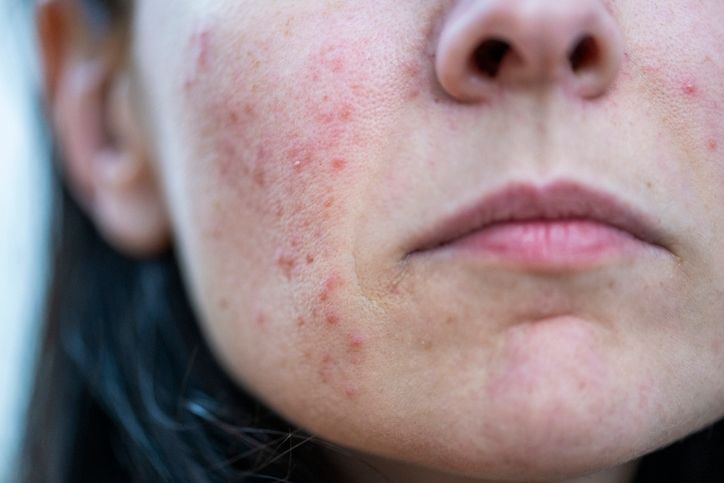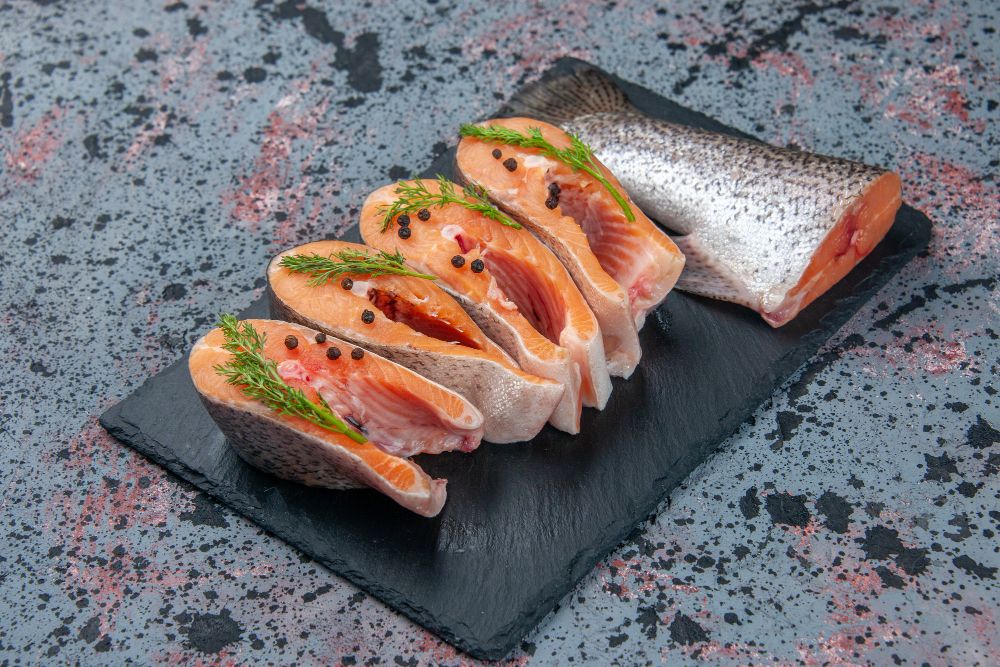
Book Now to Experience
Acne Treatment
1 Minute Self-Registration
Date should not be before minimal date
Author: Leila Tan|Updated: 23 July 2024
Some people may have endured a lengthy battle against acne, while others may have been fortunate enough to have never experienced it. Acne may be extremely irritating and embarrassing to deal with. Acne can impair one's self-esteem and make them feel less beautiful as a secondary effect. However, effective treatments are available so that you can swiftly eliminate acne and achieve the velvety skin you've always desired. If acne has caused you to lose confidence, this article will show you how to treat it quickly and effectively. Continue reading if you're ready to do something about your acne!

1
What Caused Your Acne?
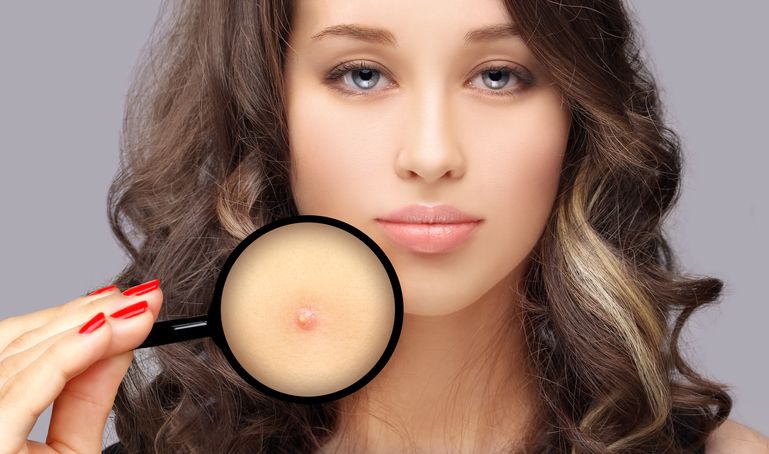
Acne vulgaris, more commonly known as acne, is one of the most common skin problems that people of all ages get, which affects over 80% of adolescents and young adults. It is caused by an overproduction of oil in the sebaceous glands, which can lead to painful and unsightly pimples on the face, chest, back and shoulders.
Acne vulgaris can be embarrassing, annoying, and even painful, but you can take steps to make sure it doesn't hurt or scar your skin in the long run. It's important to know what causes acne so you can take the right steps to stop it and treat it when it happens. Here are a few of the main causes of acne:
Genes
play a role in how likely someone is to get acne and how they deal with it. People whose family members have acne that causes problems are more likely to get it themselves than those whose family members don't have acne problems. Also, people with certain ethnic backgrounds, like African Americans or Asians, may be more likely to have severe acne than others. This is because their hair follicles and sebaceous glands, which control oil production in the top layer of skin, may be different genetically.
Hormones
Hormones usually cause acne by making the oil glands on your skin make more oil (called sebum). This oil can mix with things like bacteria and dead skin cells, which can block pores and cause acne. Acne is often caused by changes in hormones that happen during puberty, menstruation, pregnancy, and menopause.
Stress
Cortisol levels go up when you are stressed, which has been linked to acne flare-ups. When you're stressed, your body makes more cortisol, which makes your skin and other parts of your body swell up. Stress is a major cause of acne, and it can also make acne worse by making acne flare up and last longer than usual.
Diet
Eating too much sugar or fried food can cause inflammation all over the body, which can make acne worse. Foods high in omega-6 fatty acids, like processed vegetable oils, can have a similar effect on how bad acne is, while foods high in omega-3 fatty acids, like salmon, tend to keep acne from getting worse.
Hygiene
Having bad hygiene is a big reason why people get acne. Dirt, dead skin cells, and oil build up on the surface of your skin if you don't wash your face often or take off your makeup before bed. If you don't take care of yourself, you're also more likely to get sick from bacteria that thrive in dirty places.
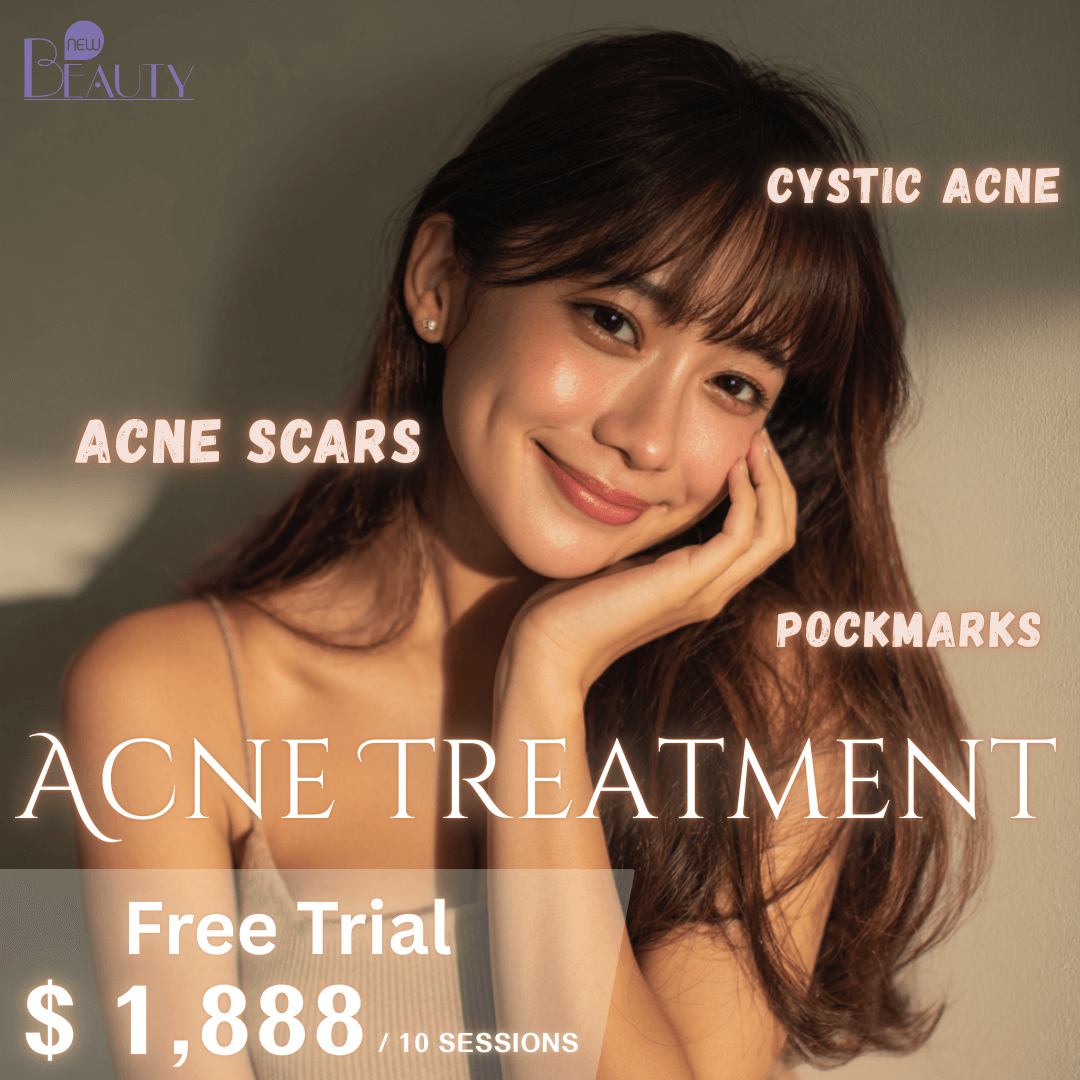

2
What Skin Type is Acne-Prone Skin?
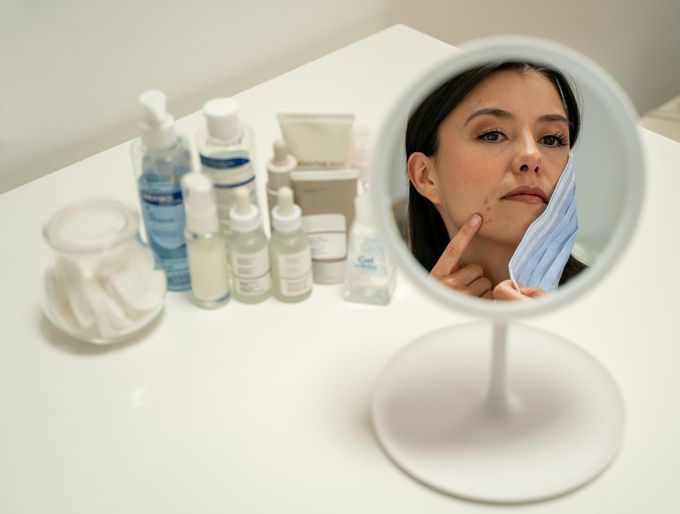
Acne-prone skin can be any type of skin, including oily, dry, or a mix of the two. Most people with oily skin have acne because their pores get clogged up from making too much oil. When pores get clogged up with too much oil, dead skin cells, and other junk, bacteria can grow and cause inflammation, pimples, and other forms of acne. Even dry skin has pores that can get clogged by dirt, make-up, and other things in the environment.
However, dry skin pores are less likely to get clogged with acne-causing bacteria. Combination skin is the most difficult type among them because it usually has both oily and dry patches, which can make it hard to keep pores clean and free of bacteria.
In general, people whose skin is prone to acne tend to have larger pores. When clog pores contain too much oil or dirt, they are more likely to get infected, which can lead to pimples or cysts on the skin's surface. The best way to control your pores and prevent breakouts is to clean them twice a day with gentle cleansers and use products that are made for your skin type.
How to check what skin type you are:
Oil blotting is one of the simplest and most effective ways to determine your skin type. Taking a piece of oil-absorbent paper, such as Rice Paper or Toilet Paper, and pressing it against various portions of your face constitutes oil blotting. Once this is complete, examine the oil absorbent paper; the presence of oil on the paper shows that you have oily skin. Alternatively,, if there is no oil on the oil-absorbent paper, you likely have dry skin.
It is crucial to remember that oil on paper does not always imply a skin type that is very oily. Even those with dry skin have oil in their pores. However, if there is a significant amount of oil on the oil absorbent paper after pressing it against your face, this could be a sign of you having very oily skin.
In addition to using oil blotting techniques to discover your skin type, you can also assess if your complexion is dry or oily in a number of other ways. Those with drier skin types may feel that particular regions are less oily than others; for instance, those with drier complexions typically notice more oil around their noses and foreheads than everywhere else on their faces.
If you frequently experience blackheads or whiteheads, it is likely that you have an excessively oily complexion, which can lead to frequent breakouts if not kept under control with regular cleansing and exfoliating regimens using gentle products formulated for acne-prone/oily skin types.
Read More

3
10 Do’s & Don'ts To Aid You in the Battle with Acne
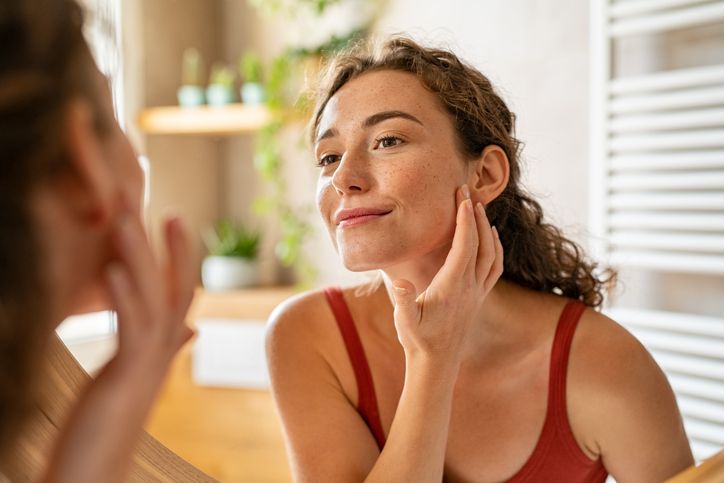
It does not have to be hard to treat pimples. In fact, there are a variety of treatments available that make it relatively easy to reduce and treat the symptoms of acne. However, depending on the severity of your skin condition, some treatments may work better than others for you. Here are 15 ways to help you to treat acne more effectively:
Use makeup with salicylic acid to conceal pimples
Concealing acne with makeup containing salicylic acid is an effective method of treating skin irritation caused by acne. The salicylic acid is a member of the keratolytics class of drugs, which are used to soften skin lesions or remove layers of skin cells.
Salicylic acid also possesses astringent characteristics; it lowers excess oiliness that can cause clogged pores and breakouts by assisting in the unclogging of pores and reducing irritation around them. It also helps reduce acne-related redness, irritation, itching, and burning. In addition, Salicylic Acid can help keep your skin hydrated due to its anti inflammatory properties, which help preserve moisture in the skin while gently eliminating dead cells - a crucial factor in the fight against acne!
Get rid of pimples by doing spot treatment with tea tree oil
Tea tree oil is a natural antiseptic and anti-inflammatory that helps heal the skin. It can be put on the skin to help reduce acne-related skin irritation, such as redness and swelling. Together, the antiseptic chemicals in the oil kill the bacteria that cause pimples. The soothing smell of tea tree oil makes skin irritation less stressful and helps people relax, which in turn helps the skin heal faster.
Also, tea tree oil has antimicrobial properties that make it great for killing acne-causing germs before they can get into the pores and cause breakouts. Because of this, tea tree oil is one of the best spot treatments because it works quickly to heal pimples and stops new ones from forming. All of these things make tea tree oil a powerful weapon against acne, making it easier than ever for people to get rid of their skin problems.
Moisturise your skin with aloe vera gel
By nourishing and hydrating your skin, moisturising your face with aloe vera gel will help you get rid of pimples. Aloe vera is a natural substance with natural healing capabilities and vitamins that can help reduce inflammation and repair tissue damage caused by blemishes. It aids in the removal of excess oils and debris from the pores, which are typical causes of pore-clogging acne breakouts. Furthermore, it aids in the removal of dead skin cells, the unclogging of pores, and the sloughing away of pore debris on the surface, allowing newer cells to be revealed for brighter-looking skin.
Aloe vera's anti-inflammatory properties also help reduce the redness and swelling associated with breakouts, making your skin look smoother, clearer, brighter, and healthier overall. Furthermore, hydrating the skin provides it with greater general moisture, which helps to avoid dryness, which can lead to the overproduction of oil as well as bacterial development, which exacerbates existing breakouts or promotes new ones to emerge.
Don’t pick your face
It might seem harmless to pick your face, but it can do significant damage and make your acne worse. When acne or scars are picked at, the skin's natural protective barrier is compromised. Additionally, picking will worsen acne issues, resulting in scarring, patches and redness that take longer to disappear.
Aside from that, pressing pimples can push acne-causing bacteria deeper into the skin and disseminate them to other areas of the face. This can result in additional acne that is more difficult to eliminate than if you had not picked at them. So, it is better not to make skin worse by picking at it, as this will make acne worse rather than help it clear up more quickly.
Pick the right skincare ingredients to clear pimples fast
One of the best ways to fight acne is to use skin care products with benzoyl peroxide, which works quickly and well. Benzoyl peroxide helps clear out clogged pores, which can help reduce acne-related inflammation and redness. It can also kill bacteria on the skin that cause pimples to form. Also, benzoyl peroxide can help keep blemishes from leaving acne scars because it stops the area from getting worse after a pimple has formed.
Also, benzoyl peroxide helps keep your skin clear by getting rid of the extra oil on your face that can clog your pores and lead to more breakouts over time. Because of all of these benefits, using skin care products with benzoyl peroxide is a great option for anyone who wants to get rid of acne quickly without risking serious side effects. Because of this, it's important to choose an acne product with this active ingredient if you want to get the best results against breakouts and avoid harsh chemicals or other additives.
Try taking zinc supplements
The mineral zinc has been shown to be effective against acne. This is because zinc governs the production of oil glands on the skin, which are usually linked to acne outbreaks. It is feasible to reduce the frequency and severity of acne outbreaks by keeping control over these oil-producing glands. Zinc also acts as an anti-inflammatory and antioxidant, protecting skin cells from UV damage and kills acne-causing bacteria, which can lead to pimples and scarring around acne-affected areas. Taking zinc supplements may help restore sebum-producing hormones such as testosterone and oestrogen to a balanced condition, which helps normalise oil production and reduces the probability of developing new pimples.
Because many types of acne are caused by bacterial infections or hormonal imbalances, consuming zinc may improve your immune system, giving your body a greater chance of avoiding future outbreaks. Because of these benefits, zinc supplementation is an essential component of any treatment for persistent scarring or active cases of severe inflammation caused by cystic or nodular forms located deep within pores.
Don’t stress
Stress is one of the main things that can make acne worse. When you're stressed, your body makes hormones called cortisol and adrenaline. These hormones make your skin have excess oil and block your pores, which can lead to acne. Stress also causes inflammation in your body by messing with the hormones that control how much inflammation there is. This makes acne lesions turn red and swell up. Also, stress can make the sebaceous glands make too much sebum, which can lead to more clogged pores and pimples.
Even worse, when you're stressed, you're more likely to pick at your face, which spreads bacteria and causes even more pimples because you're touching your face with your dirty hands or fingernails. Taking steps to reduce stress, like doing yoga or meditation, will help you get rid of stubborn pimples faster and reduce the number of breakouts you get. People with acne-prone skin or who have already had a breakout because they were stressed out should include some relaxation techniques in their skincare routine so they can get clear skin back quickly.
Do change your pillowcases
Changing your pillowcases on a regular basis can aid in the fight against pimples by keeping your skin clear of impurities that accumulate on your face as you sleep. This reduces the number of microorganisms on your skin, which can worsen existing acne or produce new breakouts. Pillowcases become dirty rapidly owing to sweat, drool, and hair oils, therefore it's vital to replace them on a regular basis - at least once or twice a week - to remove any dirt, excess oil, and bacteria that could be transferred directly into your skin.
Keeping them clean can also help to prevent further irritation from harsh detergents or fabric softeners that are left behind after laundry. Using materials like silk will also help keep moisture in, preventing skin from drying out and becoming itchy during sleep. If all else fails, prescription medicine may be required, but changing pillowcases is the first step towards preventing acne flare-ups!
Ice the pimples
Putting ice on your pimples can help with acne because it can make the pimple smaller and help it heal faster. It also makes redness and swelling go away. When you put ice on a pimple, it makes the blood vessels under the skin narrow, which helps reduce swelling. This means that less dirt and bacteria can get into your pores, which will help keep you from getting more breakouts.
Do consider long-term acne treatments to get rid of pimples
Acne problems can be helped by treatments that are specifically designed for treating pimples, and are relatively more effective than natural acne treatments. One of the more popular treatments is microdermabrasion. Microdermabrasion is a skincare procedure that makes wrinkles, scars, and other signs of ageing look less noticeable. It works by removing the top layer of dead skin cells from the face and then gently scrubbing away any dirt or sebum that is left with an exfoliating tool. This helps to clear out your pores, improve blood flow, reduce inflammation, and even out the colour of your skin. If you are interested in saying goodbye to pimples fast, here's good news: New Beauty's Acne Treatment may be able to heal acne problems more efficiently than spot treatment or acne medication.
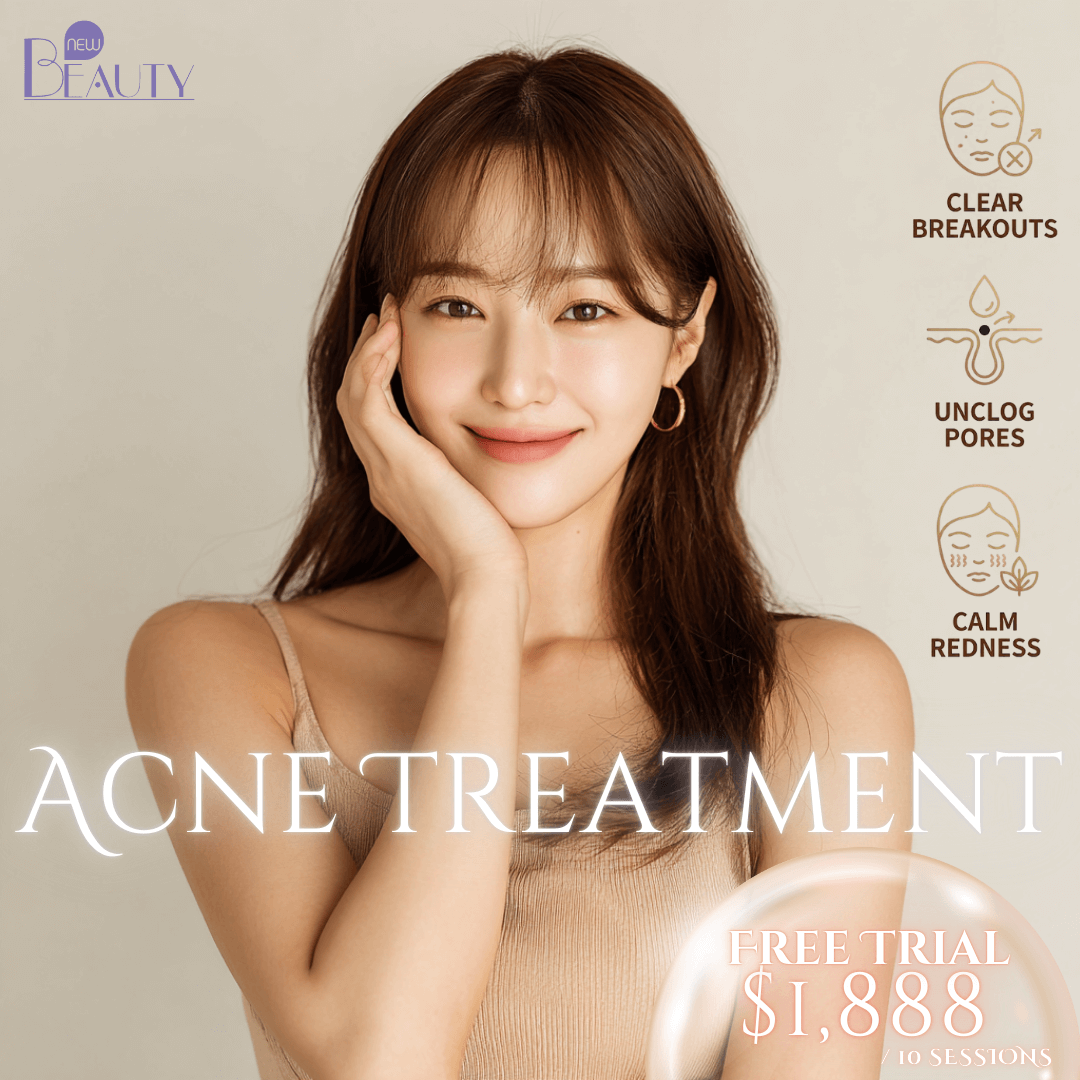

4
Get Rid of Pimples Fast: Here's How New Beauty's Acne Treatment Can Bring You a Clearer Skin
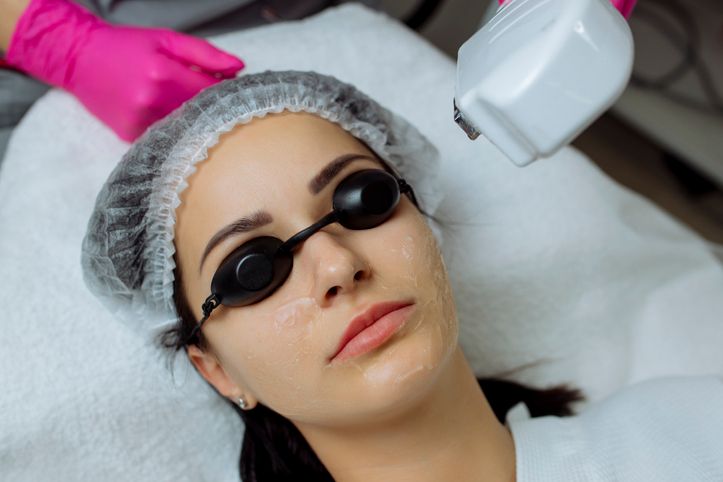
Acne Treatment by New Beauty is perfect for those with acne-prone skin. This treatment uses vacuum microdermabrasion to clear up pores, calm inflammation, and hasten the skin's natural process of shedding the condition.
During the treatment, the dual spiral suction plus drainage method can help to unclog your pores, reduce acne's inflammatory and infectious symptoms by removing dead skin cells. Afterwards, a moisturising serum will be injected into the skin to promote collagen production and regulate sebum output. Future acne outbreaks will be less likely if excess oil is not produced.
Thus, this Acne Treatment can help with a wide variety of skin issues, including active acne, blemishes, blackheads, whiteheads, pockmarks, enlarged pores, dry skin, acne scars, and a generally lacklustre appearance. Acne and blackheads are reduced because the therapy hydrates the skin, promotes collagen production, and lessens sebum secretion. It can also be used with other topical treatments, like retinoids or benzoyl peroxide, to get better results over time.

Book Now to Experience
Acne Treatment
1 Minute Self-Registration
Date should not be before minimal date

5
Last Few Words
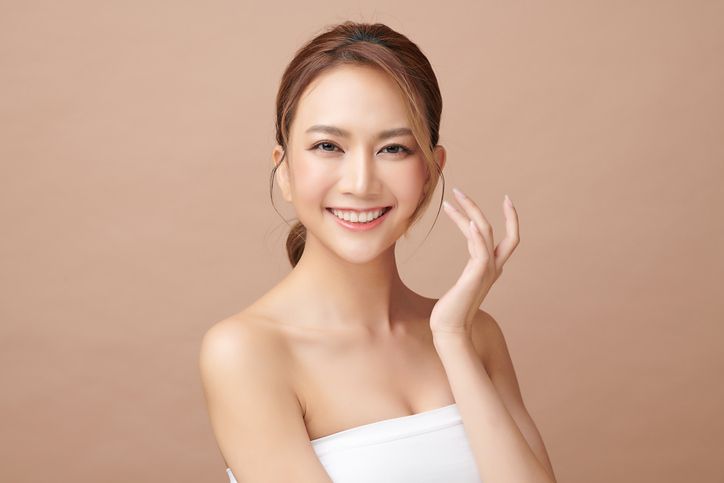
Acne always seems to arrive at a bad time if there isn't enough time in your life cycle to prevent it from coming as soon as feasible. There is no better feeling than when a breakout occurs and you begin looking for effective solutions to eradicate pimples quickly. If you had enough painful pimples and would like to give your clogged pore a treat, try New Beauty's Acne Treatment today for flawless skin!
FAQ
Will sensitive skin have more acne?
The answer depends on your skin care routine and lifestyle. If you have sensitive skin, you may break out in red bumps and pustules that look like acne. You might find that a wash or cream for acne makes your symptoms worse instead of better.
What are the benefits of the Acne Treatment?
Acne Treatment uses a non-invasive, safe, and mild two-way spiral suction-and-drainage technique. This technology is capable of exfoliating dead skin cells and unclogging pores. Furthermore, the medical-grade moisturising serum replenishes water molecules, reduces sebum secretion, and promotes collagen growth in skin tissues. As a result, Acne Treatment can relieve current acne while also preventing future breakouts, leaving you with a clear complexion.
Is Acne Treatment painful?
No, it isn't! To accomplish mild skin resurfacing, the Acne Treatment incorporates a non-invasive exfoliating and deep-cleansing technique. There are no harsh equipment used in the operation, such as needles or scrubs, and there is no pushing, pocking, squeezing, or picking at the skin, resulting in no wound and minimum pain.
Is there any downtime for this Acne Treatment?
This treatment is non-invasive acne elimination treatment that does not leave healing wounds, so you do not need to rest at home. Instead, you can proceed with your daily activities as usual.
Does the Acne Treatment give long-lasting results?
It is recommended to complete the whole session plan for the best results in calming the breakout and stopping it from happening again. Even after the treatment is over, the treatment stops sebum from being made and keeps collagen from breaking down. Please clean and care for your skin properly so that the effects of the treatment last as long as possible.

Book Now to Experience
Acne Treatment
1 Minute Self-Registration
Date should not be before minimal date
Recommended Articles
COPYRIGHT© NEW BEAUTY MANAGEMENT LIMITED 2026. ALL RIGHT RESERVED.

